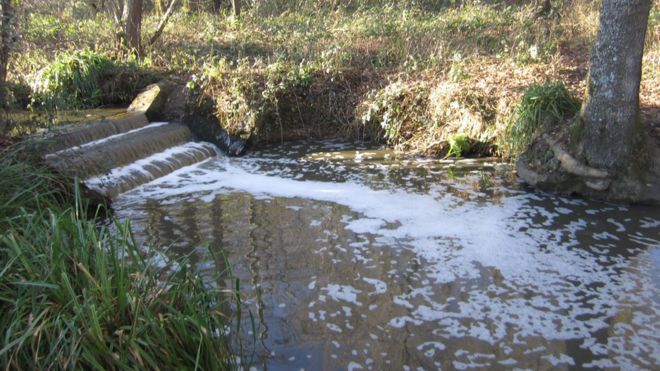
Plumpton College has been ordered to pay out £95,000 after it polluted a nearby stream causing the deaths of 1,500 fish.
The Environment Agency prosecuted the East Sussex agricultural college after 'management failings' caused slurry to significantly pollute a nearby stream.
The college was fined £50,000 and ordered to pay costs of almost £45,000 at Hove Crown court on Wednesday (2 September).
Judge Shani Barnes said the agency had 'worked tirelessly' to bring the college into regulatory compliance over the past few years.
The court heard on 29 and 30 November 2016, contaminated water containing a high amount of slurry was spread as fertiliser onto a field known as 15 acres, at Wales Farm, now known as Lambert Farm, managed by the college.
This work was carried out by head herdsman Stuart Duncan, despite the volume spread being many times more than the field could absorb.
As the ground was also frozen, much of the contaminated water ran off into ditches and land drains, which then flowed into the nearby Plumpton Mill Stream.
The pollution was classified as a Category 1 incident by the Environment Agency – its most serious level.
It said the stream smelled strongly of slurry, and the watercourse was visibly brown with foam on the top. Many of the dead fish were protected species, such as migratory trout.
The agency became aware of the incident after it was reported by a member of the public. The college did not report the pollution had occurred, and nor did it have an emergency plan in place for dealing with slurry spillage.
The agency has been in contact to advise the college on its management and operations on number occasions since 2011, because of concerns about incidents and non-compliances with agricultural regulations.
The college admitted the incident was the result of a mistake by a member of staff. They admitted that the actions taken to spread the slurry were wrong, as the weather conditions and field were not suitable for this to take place.
Prior to sentencing, Duncan accepted a formal caution for his actions contributing to the incident.
Ed Schmidt, EA's environment management team leader in Sussex, said poor management, a lack of contingency planning and inadequate infrastructure at the farm resulted in a 'totally avoidable pollution incident'.
"It is even more disappointing that a college that specialises in agricultural practices and teaches farmers of the future failed to take all reasonable actions, and was wholly negligent in preventing this incident from occurring in the first place.
"The outcome of this case should be a clear and strong message to all people working within the farming industry to ensure they think about the actions they take when managing highly polluting liquids."
